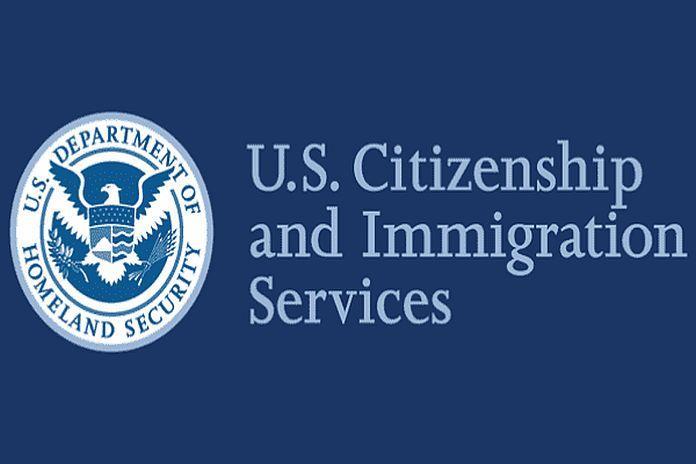
A Texas judge’s decision on February 16th forced the Department of Homeland Security to halt plans to begin accepting applications for Expanded Deferred Action which was planned to begin Wednesday, February 18th. The judges’ decision also could delay the planned implementation of Deferred Action for Parents (DAPA) which was planned to start mid-May. The Obama administration issued a press release stating that it is confident that it will prevail in the legal fight over the use of executive orders used to implement his deferred action initiatives.
if you want to know more contact us

A medical exam is required for most Adjustment of Status (Green Card) applicants. This medical exam must be performed by a USCIS registered civil surgeon. USCIS has now created a new system to make it easier to find a registered civil surgeon close to you. This -Find a Doctor- locator tool lets you enter your address and zip code to search for doctors closest to your location. It also gives directions and helps you find local public transportation if needed.
You can access the Find a Civil Surgeon tool by going to USCIS.gov home page and clicking on TOOLS. Then click on “Find a Civil Surgeon (Doctor)” on the left hand side of the page. Once you click on that, it’s easy to follow the prompts until you find a doctor close to you. If you are not very tech savvy, then you can still find a civil surgeon by the calling the National Service Center at 1-800-375-5283.
Once you have located a civil surgeon close to you, I recommend that you call to make an appointment. I would also inquire about price, if they provide the I-693 Forms, and see if they accept your medical insurance.
The following are a list of Items that should be brought to the exam:
–Form I-693 Report of Examination and Vaccination Record (bring this if the doctor does not provide it).
–Government-issued photo identification, such as a driver license or valid passport. If you are 14 or younger bring your birth certificate with an English translation if needed.
–Medical insurance card (check with the doctor to see if they accept your medical plan)
–Vaccination or immunization record.
–Payment for the exam.
During the exam the doctor will be testing for communicable diseases such as tuberculosis and to make sure you have all the required vaccinations. After conducting the exam and tests the civil surgeon will place the Form I-693 in a sealed envelope. DO NOT OPEN THE SEALED ENVELOPE. USCIS will not accept the form if the envelope has been altered or opened. Before the doctor seals the envelope ask for a copy of the medical exam for your records.

On April 25, 2015, central Nepal was struck by a powerful 7.8 magnitude earthquake. According to news reports, more than 7000 people were killed, and an estimated 100,000 people have been injured. The aftermath of the disaster which has flattened small villages and destroyed neighborhoods in the capital city of Katmandu has lead to an aftermath of diseases from poor drinking water and lack of toilets. In response to the devastating disaster, United States Customs and Immigration Services (USCIS) has implemented a number of immigration relief measures which include:
- A grant of re-parole.
- Expedited processing of advance parole requests
- Expedited requests for off-campus employment for F-1 students experiencing severe economic hardship
- Expedited adjudication of employment authorization applications
- Consideration of Fee Waivers for USCIS applications based on inability to pay
- Assistance in replacing lost or damaged immigration travel documents issued by USCIS
- Change or extension of nonimmigrant status for an individual currently in the United States
In addition to the new Nepali immigration relief measures, USCIS would like to remind U.S. citizens who wish to help by adopting Nepali children to take caution. The immigration process for adopted children abroad is not immediate. Before an adopted child may immigrate to the United States, USCIS must first determine if the child qualifies as an “orphan” according to United States immigration laws and the laws of intercountry adoptions. In addition, the U.S. adopting parents must also first prove that they are fit to adopt and have the means to take care of the adopted child. For more information about adopting children from Nepal please visit the USCIS Adopt Information: Nepal web page.

The Citizenship and Integration Program is a competitive grant program for non-profit and public organizations that prepares lawful permanent residents for citizenship and promotes immigrant civic integration. The primary purpose of the grant program is to expand high-quality citizenship preparation services. USCIS will offer up to $10 million of grant monies to qualified organizations. To be eligible for the funding, your organization must provide citizenship instruction and naturalization application services.
Citizenship Instruction Criteria:
- Must enroll a minimum of 200 non-duplicate lawful permanent residents in citizenship classes with a minimum of 40 hours of instruction over the two year period of the grant;
- Citizenship faculty must have at least one year of experience teaching citizenship or English as a Second Language (ESL) to adult students;
- Must use a nationally normed standardized test of English proficiency in order to properly place students in classes and assess their progress; and
- Provide at least 40 hours of citizenship instruction over an 8-15 week class cycle for students that are at or below the NRS high intermediate level.
Naturalization Application Services Criteria:
- Provide naturalization screening;
- Must prepare and submit a minimum of 200 naturalization forms (N-400) with accompanying Form G-28, Notice of Entry of Appearance as Attorney or Representative over the two year grant period;
- Provide ongoing case management; and
- Must use a BIA accredited representative or an attorney who is an employee of your organization who must sign each Form N-400 as the preparer, submit Form G-28 with each Form N-400, and mail the naturalization application to USCIS on behalf of the client. (You may use pro bono attorneys in addition to the staff attorney or BIA representative).
Applications for the 2015 fiscal program are due May 15, 2015. For more information and complete filing instructions on the FY 2015 Citizenship and Integration Grant Program, visit http://www.uscis.gov/grants or email the USCIS Office of Citizenship at citizenshipgrantprogram@uscis.dhs.gov

Temporary Protected Status for eligible nationals of Somalia was extended by Secretary of Homeland Security Jeh Johnson. TPS status will be extended for an additional 18 months, effective from September 18, 2015 through March 17, 2017.
TPS is a temporary immigration status granted to individuals who are nationals of a country that has been designated for TPS status. TPS status does not lead to Lawful Permanent Residency (green card), but it does allow beneficiaries to remain in the United States during the designated TPS period. In addition, TPS beneficiaries are given work authorization and may not be removed from the United States. When a countries TPS designation is terminated by the Secretary of Homeland Security, TPS beneficiaries return to the same immigration status that they had before they were granted TPS.
Somalia was designated for TPS status on September 16, 1991 by the Attorney General. See FR 46804 (September 16, 1991). The Secretary of Homeland Security has decided to extend TPS status for Somalia through March 17, 2016 because (1) ongoing armed conflict, and (2) extraordinary and temporary conditions that prevent Somali nationals from returning to Somalia in safety-continue to exist, and that permitting eligible Somalia nationals to remain temporarily in the United States is not contrary to the national interest of the United States. See FR 80104 (June 1, 2015).
For persons who already have been granted TPS status for Somalia, the 60 day re-registration period is from June 1, 2015 through July 31, 2015. It is very important that re-registrants apply during this period and not wait until their work authorization cards (EADs) expire.

The Citizenship Clause of the 14th Amendment states that “[a]ll persons born or naturalized in the United States are subject to the jurisdiction thereof, are citizens of the United States and the State wherein they reside. Historically, Federal courts have held that unincorporated territories are not included within the United States for purpose of the Citizenship Clause.
On June 5, 2015, the D.C. Circuit Court of Appeals agreed with prior court rulings and held that the Citizenship Clause does not extend birthright citizenship to those born in American Somoa, because it is “impractical and anomalous” to impose citizenship by judicial fiat where doing so would override the American Samoan’s rights. See AILA Doc. No. 15061068, Tuaua v. United States (D.C. 2015).
American Samoans are considered to be U.S. nationals and but are not U.S. citizens unless one of their parents is a U.S. citizen. A U.S. national is someone who was born in or having ties with the outlying possessions of the United States. American Samoa is an unincorporated territory of the United States located in the South Pacific.
U.S. nationals have some rights similar to U.S. citizens. For instance, they are eligible to apply for a U.S. passport and can work anywhere in the United States with few restrictions. However, U.S. nationals are not allowed to vote in Federal elections; ineligible for federal work-study programs in college; work in jobs that require U.S. citizenship; ineligible for firearm permits; and ineligible for certain travel/immigration visas that require U.S. citizenship.
American Samoans can apply for U.S. citizenship under the same criteria as lawful permanent residents. This means that they must meet naturalization jurisdiction requirements, pay the $680 application fee, and pass the required civil and English exam questions.





